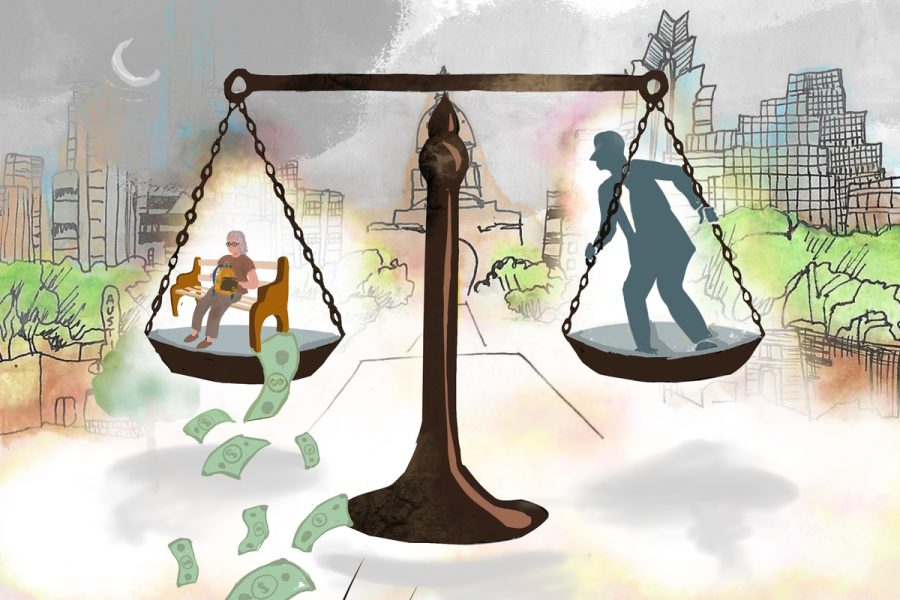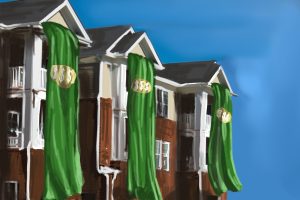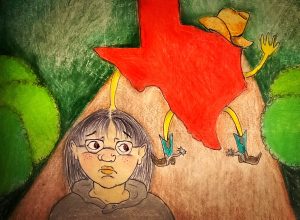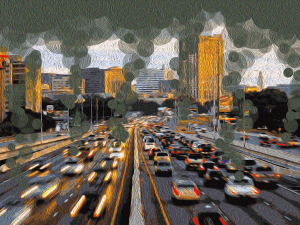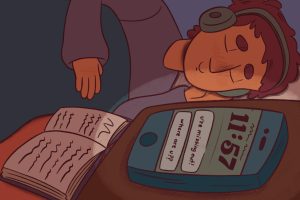Texas legislature needs to stop targeting homeless people
November 6, 2022
Texas governments have struggled to find a solution for the ever-present homelessness issue for decades. Many laws have been enacted to help the homeless, such as dedicating $25 million to address affordable housing, mental health and substance abuse, or providing employment assistance. However, just as many laws have suppressed the homeless population, including criminalizing homelessness.
Austin has been at the forefront of the homelessness conversation. This is because 1% of Austin’s demographic is homeless, which is about 10,000 homeless people for every 1 million residents — an abnormally high percentage for any city.
In 2019, Austin made it legal for those who are homeless to camp outside, which was previously illegal for 25 years. Many were immediately concerned that this law would threaten citizens’ public safety.
Gov. Greg Abbott expressed his shared sentiment in a tweet: “If Austin — or any other Texas city — permits camping on city streets, it will be yet another local ordinance the State of Texas will override. At some point, cities must start putting public safety and common sense first.”
In retaliation, Abbott renewed the public property camping ban through the use of Proposition B. Prop B gave voters the opportunity to criminalize or decriminalize homelessness; voters vastly preferred Prop B. The new law made it so that the city government could not opt out of criminalizing homelessness and instituted a fine of $500 for those guilty of “unauthorized camping.”
S.B. 987 is not the answer to Austin’s growing homeless population. This bill just leads to further ostracization of homeless people. Texas legislators need to thoroughly address the factors contributing to homelessness instead of criminalizing people already in vulnerable circumstances.
Sophomore geology major Nisa Downey sympathizes with both sides of the argument, but she believes S.B. 987 ignores bigger factors contributing to homelessness in Austin.
“I would say that (S.B. 987) really isn’t fixing anything because there’s still lots of homeless people around campus,” Downey said. “Homelessness in Austin is definitely increasing. There’s a lot of gentrification happening, and people who grew up here (are) getting kicked out of their homes.”
In addition to fining Austin’s homeless population, Prop B was supposed to be followed by an influx of affordable housing. This would have given homeless people the opportunity to improve their living situation. However, providing the homeless with affordable housing has been a slow and painstaking process.
Conrad Li, a computer science and neuroscience senior and president of Hearts for the Homeless, said the lack of affordable housing in Austin is a reason why homelessness is increasing.
“Homelessness definitely has to do with housing. … Austin is growing really, really fast and is not keeping up well with (the housing crisis),” Li said. “You can tell that (because) the roads are always crowded. Because it’s so (dense), the housing prices (and) rent prices (are) up.”
Housing prices in Austin are rapidly increasing. The Austin housing market rates have risen by 40% compared to 2020, according to Redfin. The impact of the pandemic also caused tremendous amounts of homelessness. Additionally, the mismanagement of homeless people’s stimulus checks resulted in many people not getting them in a timely manner — or at all.
There’s a common acknowledgment that Austin has a homeless problem. Many people in the UT community share concerns about the homelessness surrounding campus. In fact, last year, students and parents from SafeHorns petitioned the Austin City Council to take more action toward the vast homeless population in West Campus.
However, homeless people are not the problem; the Texas government is. S.B. 987 offers no long-term solution to aid homeless people. Instead, it wastes taxpayers’ dollars and dehumanizes homeless people. Governmental policies should focus on helping its citizens, not fining them or throwing them in jail.
Homelessness in Texas is a growing problem with many conflicting perspectives, and it affects all Texas citizens. However, the Texas government needs to understand that criminalizing and fining those who cannot afford a living wage is classist. This needs to be addressed by Texas politicians, since Proposition B does not fix the problem, but merely hides it.
“It’s really easy to dehumanize homeless people and look down on them,” Downey said. “But these are genuine people. Who knows their stories? No one really asks.”
DuBois is a public relations and sociology sophomore from Killeen, Texas.

